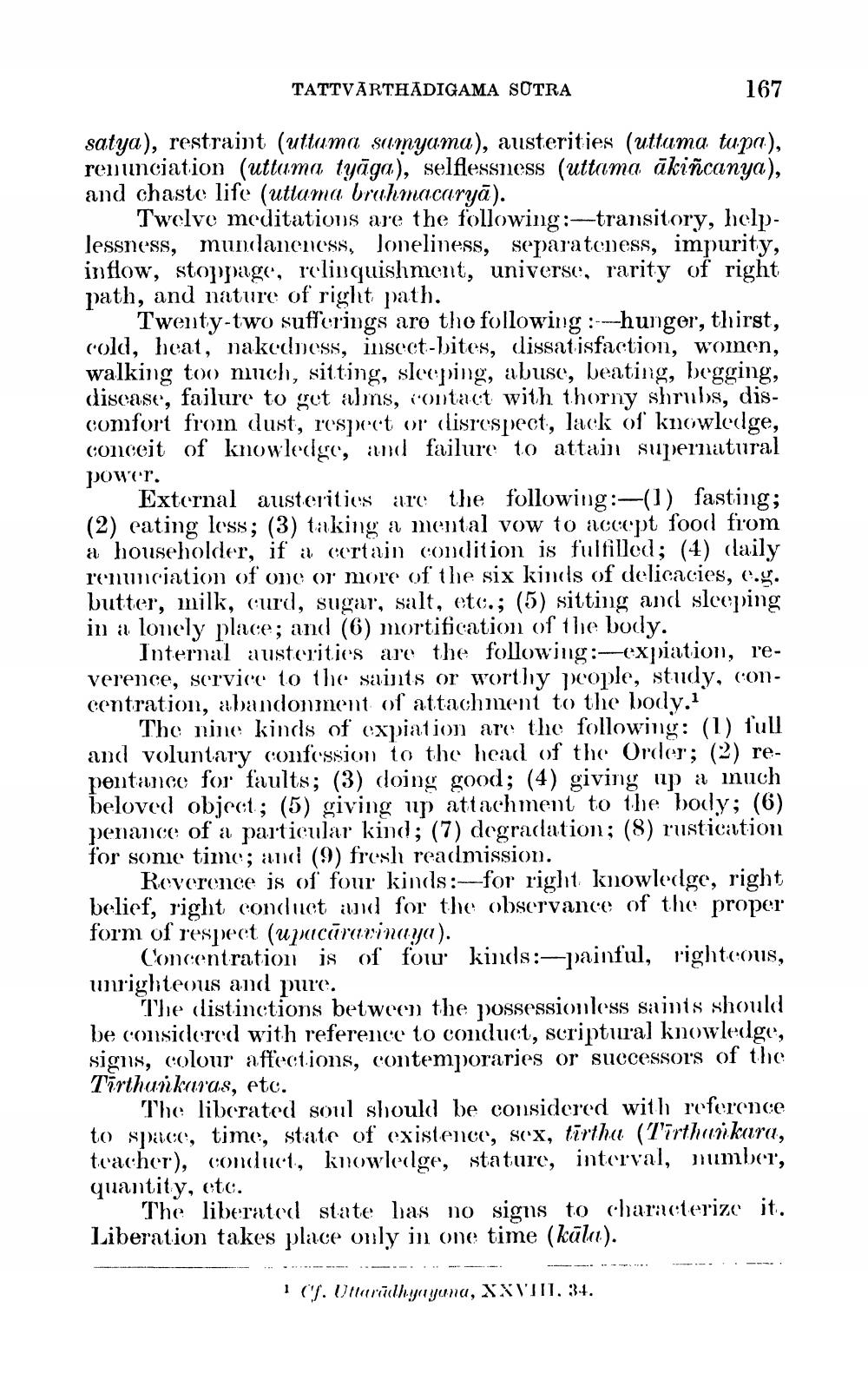________________
TATTVÄRTHADIGAMA SOTRA
167
satya), restraint (uttuma samyama), austerities (uttama tupa), renunciation (uttama, tyāga), selflessness (uttama ākiñcanya), and chaste life (uttama bruhmacaryā).
Twelve meditations are the following:-transitory, helplessness, mundaneness, loneliness, separateness, impurity, inflow, stoppage, relinquishment, universe, rarity of right path, and nature of right path.
Twenty-two sufferings are the following: hunger, thirst, cold, heat, nakedness, insect-bites, dissatisfaction, women, walking too much, sitting, sleeping, abuse', beating, begging, discase, failure to get alms, contact with thorny shrubs, discomfort from dust, respect or (lisrespect, lack of knowledge, conceit of knowledge, and failure to attain supernatural power.
External austerities are the following:-(1) fasting; (2) eating less; (3) taking a mental vow to accept food from a householder, if it certain condition is fulfilled; (4) daily renunciation of one or more of the six kinds of delicacies, e.g. butter, milk, (urd, sugar, salt, etc.; (5) sitting and sleeping in a lonely place; and (6) mortification of the body.
Internal austerities are the following:-expiation, reverence, service to the saints or worthy people, study, (oncentration, abandonment of attachment to the body.
The nine kinds of expiation are the following: (1) full and voluntary confession to the head of the Order; (2) repentance for faults; (3) doing good; (4) giving up a much beloved object; (5) giving up attachment to the body; (6) penance of a particular kind; (7) degradation; (8) rustication for some time; and (9) fresh readmission.
Reverence is of four kinds: for right knowledge, right belief, right conduct iud for the observance of the proper form of respect (upacūravinaya).
Concentration is of four kinds:-painful, righteous, unrighteous and pure.
The distinctions between the possessionless saints should be considered with reference to conduct, scriptural knowledge, signs, colour affections, contemporaries or successors of the Tirthunkaras, etc.
The liberated soul should be considered with reference to space, time, state of existence, sex, tirtha (Tirthari kara, teacher), conduct, knowledge, stature, interval, number, quantity, etc.
The liberated state has no signs to characterize it. Liberation takes place only in one time (kūla).
(f. Uttarithyayuna, XXVIII. 34.




